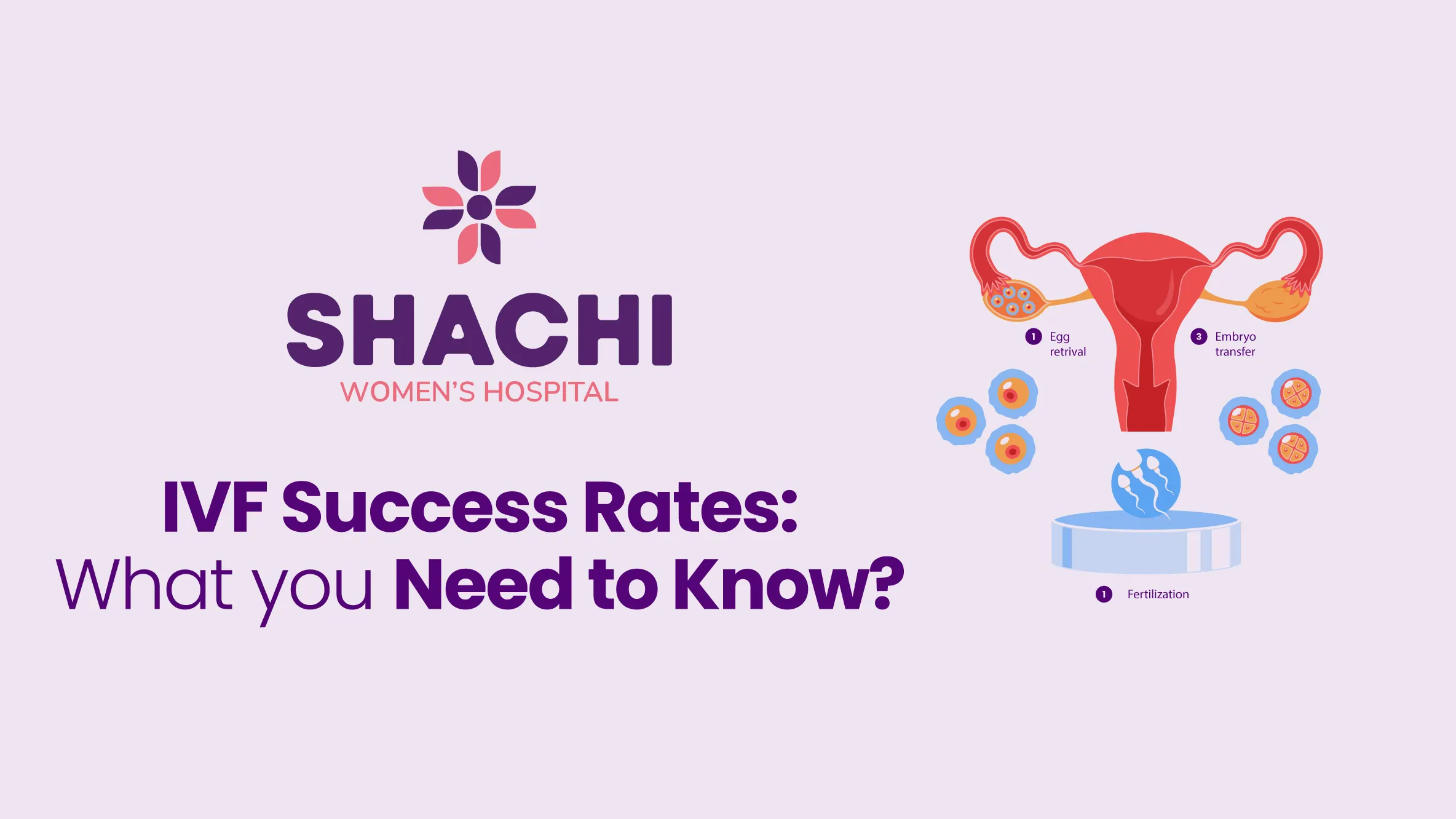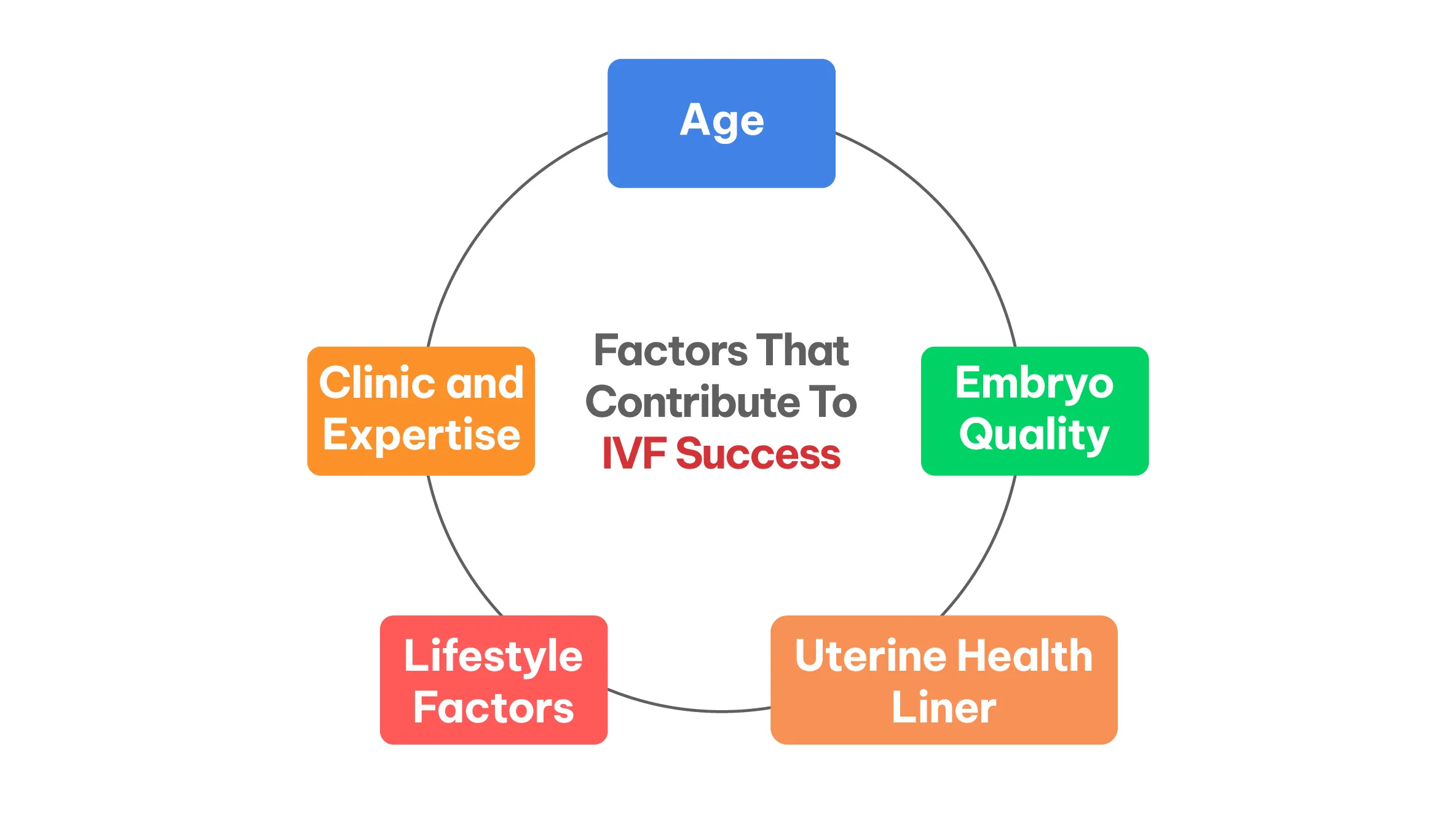
The road to becoming a parent is a rocky one for many couples, and for many, in-vitro fertilization (IVF) is the light at the end of the tunnel. If you are looking for IVF Treatment in Ahmedabad, then Shachi Women's Hospital's modern reproductive technology has provided new opportunities for people dealing with infertility.
One of the most important things you need to know is how to interpret IVF Success Rates so that you can make an informed decision about whether or not to pursue treatment. This blog will walk you through some of the elements that can affect whether you will get a good rate and what you need to know to increase your chances.
What Are IVF Success Rates?
Success rates of IVF are defined as the ratio of IVF cycles that return in a live birth. These rates vary widely based on factors such as age, health conditions, lifestyle choices, and the quality of the fertility clinic. For many, those numbers are daunting, but they offer an important benchmark for what advances in reproductive technology can achieve.
The average success rates for Ivf, according to recent studies, lie around 50% for women under 35 and reduced for older age brackets. For women 38 to 40, the rates hover at about 20% to 25%, and for those over 42, around 5 to 10%. While these numbers offer a rough guideline, everyone’s experience is different, and these averages don’t give us an idea for everyone else.

Factors That Contribute to IVF Success
1. Age : Age is one of the key factors affecting success rates of IVF. Younger women produce healthier eggs, which greatly increases the likelihood of successful fertilization and implantation.
2. Embryo Quality : Age is one of the key factors affecting success rates of IVF. Younger women produce healthier eggs, which greatly increases the likelihood of successful fertilization and implantation.The success of IVF is influenced by the quality of the embryo. Now, there are enhancing techniques such as preimplantation genetic testing to identify the healthiest embryos for transfer.
3. Uterine Health Liner : A receptive uterine lining is essential for implantation. Such conditions and other uterine abnormalities can reduce the success of IVF.
4. Lifestyle Factors : Age is one of the key factors affecting success rates of IVF. Younger women produce healthier eggs, which greatly increases the likelihood of successful fertilization and implantation.Smoking, excessive drinking, poor diet, and physical activity can affect fertility and the success of IVF.
5. Clinic and expertise : The qualifications of the medical team and cutting-edge technologies available at the fertility clinic can impact success rates significantly. Always go for a clinic with a long history of success and open reporting of their success rates.
Things You Can Do To Improve IVF Success Rates
If you are considering IVF, there are several Tips to increase your success rate :
1. Start at a younger age : Because age is a significant factor, don’t delay starting IVF.
2. Adopt a Healthy Lifestyle : consuming a wholesome diet, exercising regularly, and staying away from harmful substances can improve your overall fertility health.
3. Choose the Right Clinic : Research your fertility clinics carefully and choose one with high IVF Success Rates and a good reputation.
4. Look for Emotional Support : IVF can take an emotional taxing. Low stress, known to affect fertility: Support groups or therapy can make a difference.
5. Your doctor can share options : For example, frozen embryo transfers or donor eggs may improve the chances of success in some circumstances.
Why do Success Rates Matter?
Knowing about success rates is the key for anyone looking to venture down this path. These rates are a useful benchmark for setting realistic expectations and guiding people to make choices that suit their aspirations and life realities. While numbers do matter, don’t forget that your experience is unique, and statistical averages do not account for every single variable that might affect your journey.
IVF has revolutionized the world of reproductive medicine. Success rates can differ depending on many factors, but IVF is a powerful tool that can help you understand your chances and make a plan based on them.
Maintain a healthy lifestyle, and choose the right clinic, like Shachi Women's Hospital, to achieve this dream. One cycle, or many, the drive to become a parent via IVF is a testimony to resilience and an astounding degree of hope, and both things can deliver incredible results.


